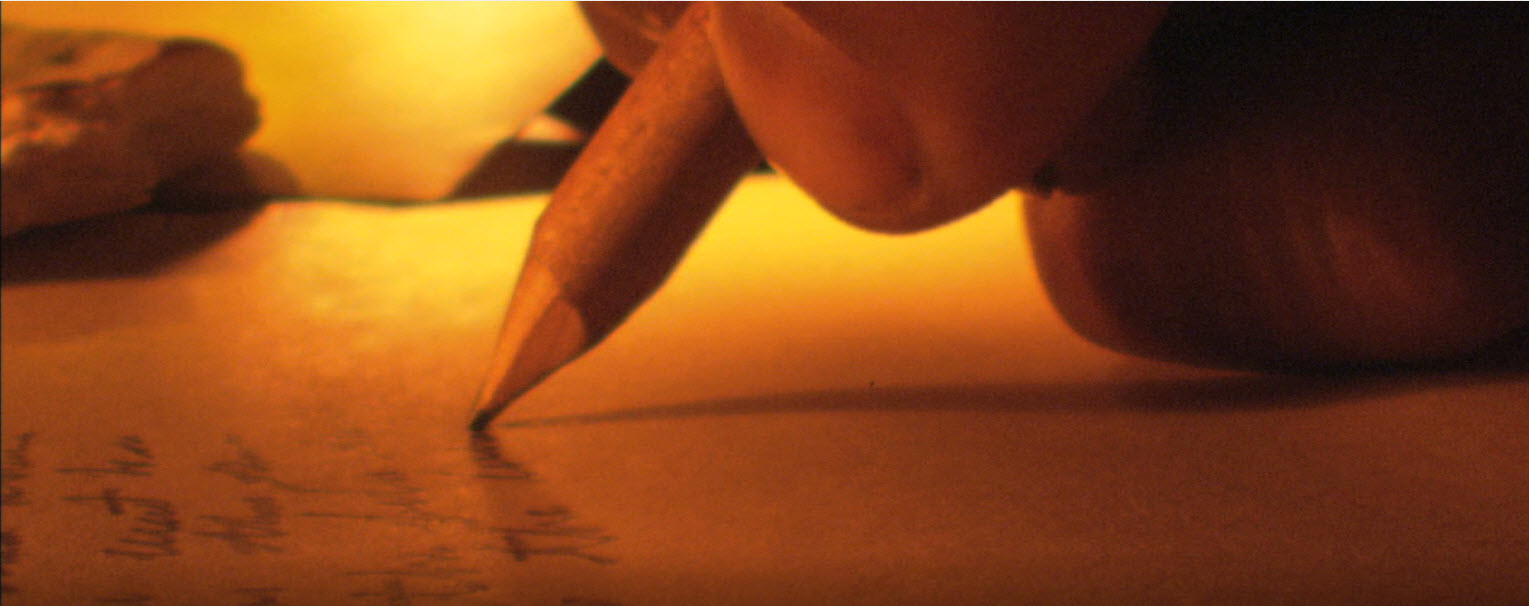T120911182057
53 Life is manifestation in all its facets, with multiple definitions and points of view—the purpose of the Self.
54 When you see an animal kill another to eat it, it is because it understands that this is how it must nourish itself. That is why the spirit should not be bound to the body—because (*)you’ve come a long way, but remember you came from below.
55 t’s just that you don’t remember—but you are part of creation. Just as one begins a new job by mopping the floors, you must start from the beginning for your own understanding—to gain enough awareness of the physical body to comprehend the rules of the game within the material world, and thus evolve, rising through experience—having come a long way, yet remembering you came from below.
56 Seek to progress and make it to the other side. I know, yet you are also attached to life, moved by wistfulness—for what you see, for what you still wish to do, and for all that remains bound to you.
57 The spirit works through the body, yet it cannot separate from its truth—that is why one seeks the spiritual path. If you seek what is material, what is physical, then remain in the physical. Do not seek spirituality.
58 That is why, for those who neither believe in nor care about spirituality, the physical world is enough—it fulfills them, for they are centered in the world that sustains them. In the end, when they die and no longer take part in the material realm, they will automatically fall into the spiritual plane. Whether they realize it or not is another subject, and slowly but surely, they will come to recognize that they are in the spiritual world.
59 There lies the key: When one enters the spiritual world, there is no choice but to accept being in it. Only then does one begin to understand, relate to it, and to live within that world.
60 The knowledge you gain on Earth goes with you. You’ll still have your limitations, and slowly but surely, you’ll begin to discover new understandings within the Self and a deeper sense of awareness. The more experiences you acquire, the more wisdom you’ll have to offer. But for that last part, one must be in a much higher plane—a plane of consciousness.
61 Some say it is inward. Others say it is outward. In truth, when you go inward, you find yourself—the Self within you.
62 Some say that reaching the spiritual world is difficult. It is neither one nor the other. Spirituality helps you break the cycle of perpetuity, for as you release attachments, you gradually free yourself from the material world—allowing you, in time, to reach the spiritual world. It is only a matter of time.
63 That is why one cannot judge—for your truth is your truth, and another’s truth is theirs. There is nothing wrong with that, as long as you keep moving. And even if you don’t, there is still nothing wrong with it. That’s when many begin to question: ‘If so many think that way, then those people are keeping me from reaching my goal!’
64 Why? If your goal is yours and no one else’s!
65 FV—It’s just that, when this is so, the world falls out of balance.
66 CFKW—If you are part of the world, then keep moving. Will the physical life be lost? Even better. Isn’t that what you’re seeking? Can you see the irony in the paradox of life?
67 You worry about the world not being destroyed, yet if the world were destroyed, everyone would enter the spiritual realm. Ironic, isn’t it? The very one you blame is the same one you defend—and it unsettles you because that truth is inconsistent with yours.
68 That’s why people get upset. You become troubled when you face something that opposes your reality. If you expect everything to move in unison with your truth, you’ll eventually face the reality that life doesn’t work that way.
69 Individuality exists, and other beings think differently from you. When you encounter someone who thinks differently, you may become upset because you don’t understand them, and their perspective challenges yours.
70 Don’t you see that diversity is everything that exists in life? Diversity is what makes life itself. Without diversity, there would be no life. Without oxygen, there would be no fire.
71 Drawing someone toward spirituality has long been a primary focus of religions. It has been the pursuit of what stands in contrast to the earthly plane. For example, the image of the devil has been used as a means to renounce the worldly—to reach another state of mind, to let go of certain things, and to find peace. Instead of living in wickedness, one is encouraged to live a spiritual life and to help one another.
72 All with the purpose of seeking balance, because human beings hold tightly to material things. Consequently, human behavior has been tamed through the fear of hell.
73 They are all levels of consciousness. It’s not one higher than the other—it’s simply another level. Levels of consciousness are levels of understanding. A child who understands addition from one to ten shouldn’t be taken further, for it would only cause confusion. You must guide them step by step, because in their current reality, numbers only go from one to ten. You see?
74 Later, other levels are attained—where geometry takes shape as numbers are seen differently—not for adding or subtracting, but for creating geometric forms.
75 Acquiring knowledge works in the same way—little by little, the state of matter becomes understood, just as spirituality does. For those whose awareness is still unfolding, spirituality is often seen as a manifestation of God in the form of a deity.
76 Yet as awareness begins to unfold, knowledge starts to expand and branch out—just as, in earlier times, humanity was seen merely as flesh and bone, knowing only how to live and exist within nature.
77 Now everything has become much more complex because of our desire to know more and more. Today, we complicate our lives by overthinking the little details of why, and why, and why—and we are no longer living life in its natural form.
78 We are no longer experiencing life. We are experiencing a technological evolution. We no longer seek to experience life; now we want to experience technological advances—where everything we learn becomes the next new thing we wish to experience through the senses, through the convenience it offers and the practicality of things, helping us create whatever we want to create even faster—from something as simple as music to refined images, data collection, how much can be found, how to search for it, and the many other ways to communicate with the rest of the world through technology. You see?
79 Funny it is. We are not experiencing life anymore. We no longer go out into the woods or visit a recreational park to enjoy a pleasant afternoon, a sunset, a sunrise, the birds, and so many other things.
80 The life we’ve created so far is neither good nor bad for how it appears; it simply is. Millions of years ago, life was about contemplating the mountains, the horizon, the rain, the sunset, the blue sky—feeding from the earth, building a home with our own hands; something that helped me understand what I’m doing here, grounding me in what is—life as it is, with its good and difficult moments. Let me experience it that way. You see?
81 From a spiritual point of view, that was what the soul once sought. Now the soul seeks so many things, for there is so much to see and to learn, that the soul itself chose to learn in this way. You see?
82 And there is nothing good or bad in that. It’s simply that humanity has chosen to see life in another way—through technology. And there’s nothing wrong with those who feel this is moving too fast, for I prefer to step aside and see life as it is. You see?
83 Life is more forgiving than technology, for it moves at a slower pace; there is nothing to chase—only to experience it. Life reveals everything just as it is. You can see and experience all that is to be seen through the senses, no matter through which of them you experience life.
84 Do not be concerned if you lack one of your senses, for you will gain greater knowledge through the others. They will guide you along the same path in a different way—with fewer distractions—simply experiencing life through the remaining senses.
85 The nature of humanity is that many do care. If humanity didn’t care, they would simply let things take their course—let one kill another, let people steal from each other, and let waste spread everywhere, as it has for so many years.
86 That is why humanity has created laws—to suppress everything that falls out of balance, under the premise of civil law: that your rights end where mine begin.
87 The problem is that humanity has found power within the law. Before that power, it has fallen into the misfortune of believing it can rule over others—without understanding that the law was made to protect the good from harm. And so, laws have been created for their own benefit and enjoyment.
88 That is where humanity errs—when law and order turn into dictatorship, creating the great paradox: The more laws that are made, the more they hinder those who find such laws unnecessary, for each one restricts their quality of life. And there will always be a push and pull, because whenever a law is created to benefit one, it inevitably hinders another—thus becoming an intervention.
89 As more laws are created, more conflicts arise, for there will always be someone who disagrees with that law.
90 The well-intended and the ill-intended must cross paths—a never-ending struggle between good and evil. If the laws were abolished, the well-intended and the ill-intended would clash, and blood would be spilled everywhere.
91 FV—Who, then, shall reign?
92 CFKW— You tell me. Most wars have been born from just that—the ill-intended attacking others. You see? To survive or to gain wealth, one invades and kills another.
93 Yours is a sad history, where the invader annihilates those who dwell upon the land—blind to all the death, the mutilation, the humiliation, and the harm inflicted—only to later feel proud of who they are, having stolen what was never theirs and calling themselves heroes. Shame should weigh upon them, for they became the very forerunners of evil.
94 Today, there are wars in which no one knows who is who—whether the invader or the victim of invasion, whether one is seizing new lands or reclaiming what once belonged to them.
95 Today, this entire turmoil is unfolding to break the cycle and bring forth changes. It is the outburst of humanity at the physical, spiritual, and mental levels.
End of Transcript 120911182057
Annotations
Article 55—“You’ve come a long way, but remember you came from below” implies that the spirit—once densified into soul and now incarnated as a human being—first embodied as a unicellular, then as a multicellular form. Thus, in its evolution, it has taken on a human form (as in “you’ve come a long way”), yet was once in an animal form (as in “you came from below”). This is the moral principle of not killing—for once you were the victim, and now you have become the victimizer. These few words hold much to reflect upon.
.

